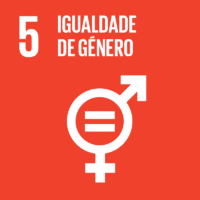Ciência_Iscte
Publicações
Descrição Detalhada da Publicação
Social and cultural correlates of identity management strategies among lesbian and gay people: The role of intergroup structure and self-construal
Título Revista
Sexuality Research and Social Policy
Ano (publicação definitiva)
2022
Língua
Inglês
País
Estados Unidos da América
Mais Informação
Web of Science®
Scopus
Google Scholar
Esta publicação não está indexada no Overton
Abstract/Resumo
Introduction
Lesbian and gay (LG) people often respond to stigmatization by managing their sexual identity. LG people may disassociate from their LGBTQ + ingroup (i.e., individual strategies) or connect to it (i.e., collective strategies). Yet, many factors that may prompt LG people to use either strategy have been generally overlooked. We explored whether socio-demographic characteristics (i.e., age and gender), perceptions of the relationship between the LGBTQ + ingroup and heterosexual outgroup, and self-construal were associated with identity management strategies among LG people.
Methods
A sample of 204 LG people (Mage = 29.78) was collected online via Prolific Academic between 2020 and 2021.
Results
Hierarchical linear regressions showed that LG people who perceived the status of their LGTBQ + ingroup relative to the heterosexual outgroup as legitimate in (im)permeable and (un)stable, contexts reported engaging in more individual strategies. Those endorsing an independent self-construal were less likely to engage in individual strategies and conveyed more LGBTQ + social support. In contrast, those with higher interdependent self-construal were more likely to engage in collective strategies. Gay men were more likely to dissociate from the LGTBQ + ingroup, whereas lesbian women were more likely to seek its support. Older LG people reported lower engagement in collective strategies.
Conclusion
These findings help paint a picture of how social and cultural variables factor in LG people managing their sexual identity as a possible response to stigma.
Policy Implications
The results can help inform policies and interventions addressing sexual identity stigma and health inequalities by emphasizing the nuances of individual-level factors among LG people.
Agradecimentos/Acknowledgements
--
Palavras-chave
Social identity,Lesbian and gay,Self-construal,Socio-structural context,Social mobility,Social support,Collective efficacy
Classificação Fields of Science and Technology
- Psicologia - Ciências Sociais
Registos de financiamentos
| Referência de financiamento | Entidade Financiadora |
|---|---|
| PD/BD/150543/2019 | Fundação para a Ciência e a Tecnologia |
| 2020.00523.CEECIND | Fundação para a Ciência e a Tecnologia |
Contribuições para os Objetivos do Desenvolvimento Sustentável das Nações Unidas
Com o objetivo de aumentar a investigação direcionada para o cumprimento dos Objetivos do Desenvolvimento Sustentável para 2030 das Nações Unidas, é disponibilizada no Ciência_Iscte a possibilidade de associação, quando aplicável, dos artigos científicos aos Objetivos do Desenvolvimento Sustentável. Estes são os Objetivos do Desenvolvimento Sustentável identificados pelo(s) autor(es) para esta publicação. Para uma informação detalhada dos Objetivos do Desenvolvimento Sustentável, clique aqui.

 English
English




